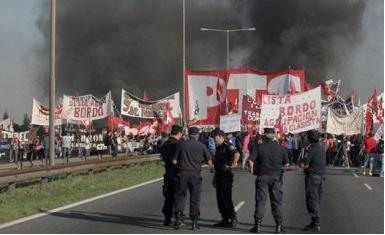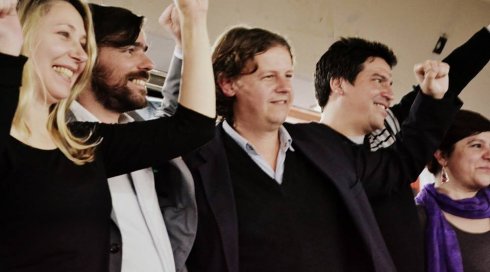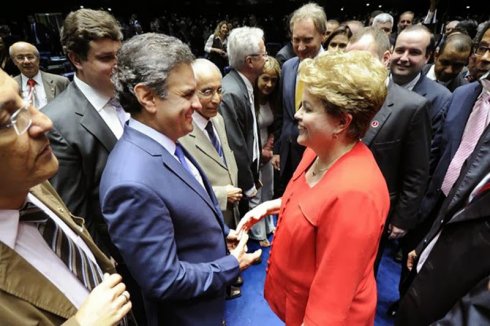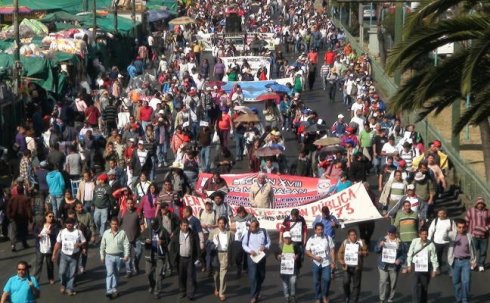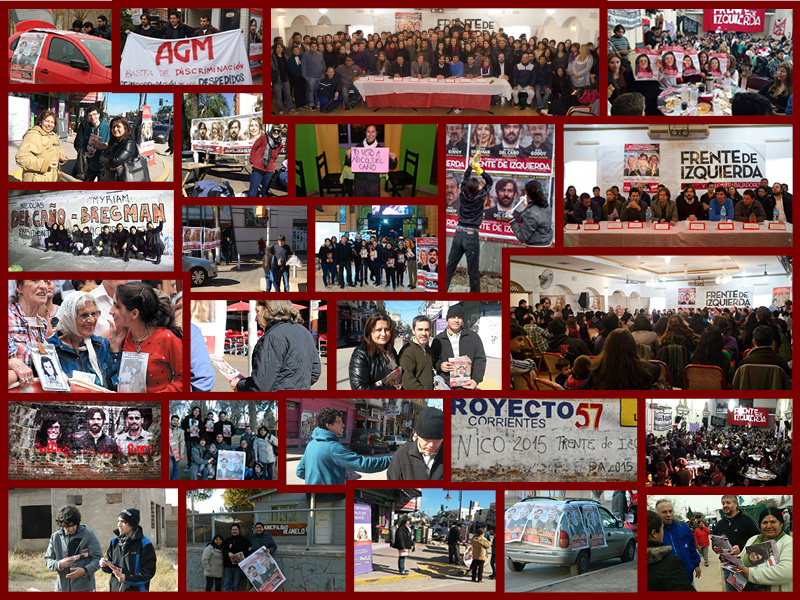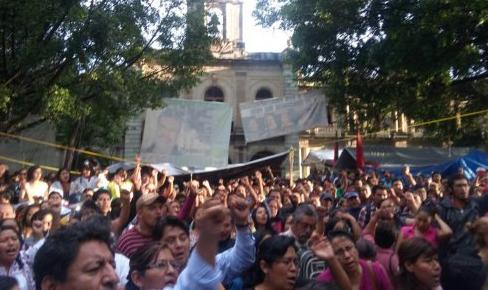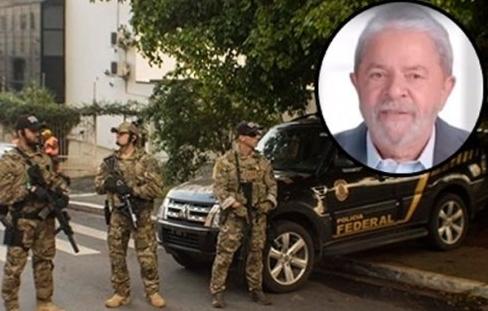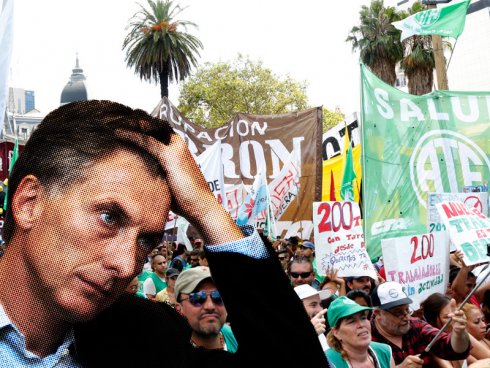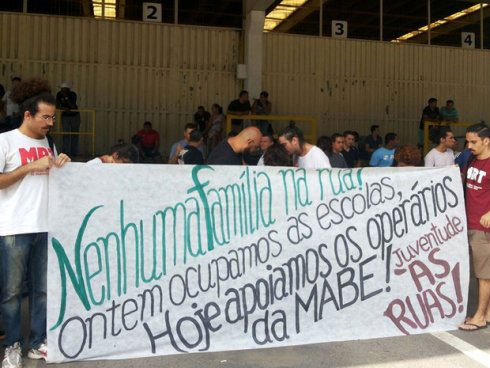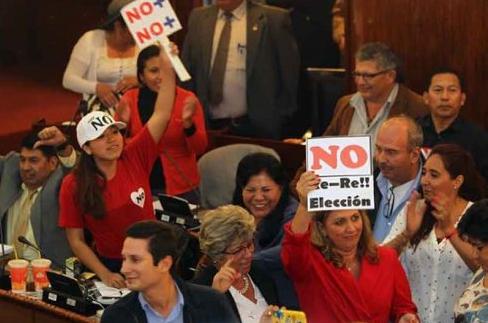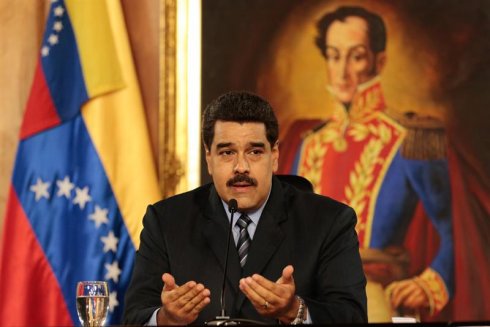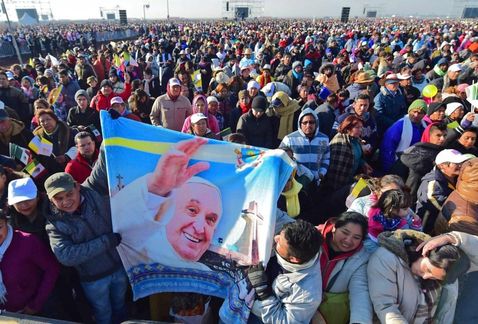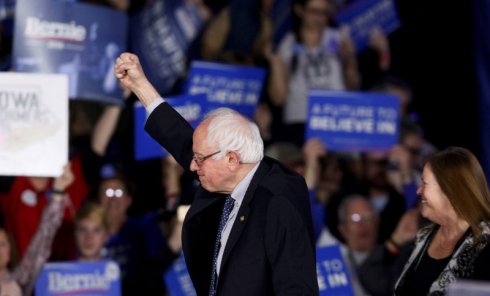Africa
Revolts are spreading in the Maghreb
13/01/2011
The youth rebellion in Algeria and Tunisia
Social tension is rapidly growing in the Maghreb. It all began with the dramatic situation of Mohamed Bouazizi, an unemployed 26 year old Tunisian computer specialist, who immolated himself after some police knocked over his street vendor’s cart, because he did not have a license. Starting from that, hundreds of protests spread through the whole country. Some days later, the protests spread to Algeria. Armed with sticks and iron bars, a rebellion, especially of young people, seized the center of Oran and at least four districts of Algiers, including Bab el-Oued in the center of the city. Demonstrators threw rocks and hurled Molotov cocktails against public buildings, starting with the Bab el-Oued police station.
In both cases, the despair of mainly unemployed youth, who consider themselves to be without a future and oppressed by reactionary, pro-imperialist regimes, was highlighted. This was expressed in the different slogans that were chanted in the demonstrations: "Thieves, return the money to the people!", "Thieves, get out of Carthage!" [the site of the Presidential Palace, that Ben Ali has occupied for 23 years].
In Tunisia, a small country of the Maghreb, "according to an official study carried out by the Tunisian Ministry of Employment in collaboration with the World Bank, if the overall unemployment rate was 14% in 2008, that of youths from 18 to 29 years old was almost 3 times higher than that of adults" (Le Monde, January 7). In that sense, we should not be surprised that youth unemployment was "the spark that caused this revolt," as a young Tunisian woman, 27 years old, explained to the daily El País, "but the demonstrators are also criticizing the authorities." "Tunisians are fed up with 23 years of dictatorship, corruption and the lack of freedom of expression."
Tunisia has already had 3 weeks of protests and disturbances. After the death of Mohamed Bouazizi, a demonstration took place in the town of Menzel Buzayane, that ended with a murder, with two shots to the chest of Mohamed Amri (a 25 year old student). Chawki Hidri, 43 years old, was wounded by a bullet and died a few days later.
In addition to these protests, lawyers protested against the repression launched by the government. Of Tunisia’s 8,000 lawyers, 95% went on strike. A demonstration in support of the Tunisian people, which about 250 people attended, also took place in Paris. One of the demonstrators stated exactly that they were there "in solidarity with our brothers in Tunisia... What is happening is returning evil for good ... one day the anger had to be expressed" (Le Monde, January 6).
This situation of a growing mobilization, that includes social questions, but that more and more incorporates clearly political demands, forced the leadership of the only union, the UGTT ("General Union of Tunisian Workers"), to declare its support for the demonstrators: "We support the demands of the residents of Sidi Bouzid [the city that the street vendor who immolated himself came from], and those of the interior regions. The UGTT could only support this movement, which backs those in need and those who are asking for jobs," declared the Assistant Secretary of the UGTT, addressing a crowd gathered in front of the premises of the Union, in the Mohamed Ali Plaza (Le Monde, January 8).
In Algeria, the rebellion is younger, less massive and more violent than in Tunisia. But the social explosion could allow it to spread to the rest of the countries of the Maghreb. We must bear in mind that 75% of Algerians are younger than 30, and 20% of those are unemployed. It is an explosion that expresses discontent at increases in the prices of food (bread, oil, sugar, milk), and growing unemployment. There is also growing dissatisfaction with the regime in this young, new generation.
In Algeria, for almost a week, hundreds of youths have been facing the police with street confrontations. According to sources, "The cost of flour and oil has doubled in recent months, reaching record prices, while a kilogram of sugar, that scarcely cost 70 dinars, 0.7 euros, a few months ago, has reached 150 dinars, 1.5 euros" [1]. According to official sources, unemployment is at 10%, but independent organizations put it at 25%.
According to official data, there are already 3 dead and 400 wounded (300 of whom are police) in Algeria. One of those who died is an 18 year old youth, Azzedine Lebza, from the province of M’sila; another fatality is a 32 year old man, murdered in Bou Smail by getting shot in the face with tear gas, according to AFP. The confrontations reached the cities of Oran and Blida.. The daily "El Watan" comments that the protests have reached the capital and also the towns of Djelfa, Ouargla and other regions of the country. A 55 year old Algerian, who lives in the Bab el-Oued district, explained that "The young people are madly against the regime. They do not understand why a rich country cannot offer its people work, housing and a decent life." Miloud Aziz, 47, said that "the prices are too expensive for people like us. Too much, it’s too much."
The EU and the US: Accomplices in the dramatic situation of the Maghreb
As could not be otherwise, no member of the European Union (EU) has said a word, much less declared its opposition to the murders of several of the young people that are leading this rebellion. The thing is, the different imperialist countries, mainly the ones that keep a greater volume of business and plundering, like the US, France, the Spanish state, and Italy, are not in the least bit interested in the life of the workers of the Maghreb. The sources distributed in the newspapers, provided by WikiLeaks, "confirm that Bouteflika (current President of Algeria) is supported by France and the EU, and that the military leadership permitted his reelection, thinking that he was gravely ill" [2]. "The other cable published by El País is from January 25, 2008, 15 months before the Algerian presidential election of April, 2009. In a meeting with his US counterpart, Bernard Bajolet, then French Ambassador to Algiers, had explained that the French government and he himself were afraid that Algeria was headed towards greater instability. He explained that he saw no alternative to a third term for President Bouteflika. M. Bajolet explained that, for France, the priority in Algeria is the continuance of economic stability and growth" [3].
Practically speaking, what interests the EU (in this case, the Spanish state, France and Italy) is that agreements for the creation of a free trade area (Euro-Mediterranean Association), seeking the complete liberalization of trade between the EU and Algiers, especially for income from the export of hydrocarbons (since Morocco and Tunisia have a similar agreement), should be reached. In the case of the EU, gas consumption is proportionally large, exceeding 20% of the consumption of the different national energies, although the degree of dependence on Algerian gas is less, thanks to the effects of the gas pipeline from Siberia. For the Spanish state, consumption of Algerian gas involves 11% according to the National Energy Plan (PEN), that the Euro-Maghreb gas pipeline supplies to the EU.
From this point of view, the different imperialist countries are not going to permit any social instability in these countries, by defending the Algerian or Tunisian governing elites, that are murdering the young people and workers who are rebelling against deplorable living conditions and the oppression of their regimes.
A revolutionary alternative is necessary
While we were writing these lines, we learned that another man in Sidi Bouzid, the same city as the late Mohamed Bouazizi, tried to commit suicide by immolating himself. His health situation is serious. These gestures of despair are the clear reflection of the degree of capitalism’s decomposition and of the savagery that this system represents. But they are also a further proof of how urgent it is to organize the world working class into big revolutionary workers’ parties in every country, parties coordinated in a revolutionary International. The lower the bourgeoisie falls, the more violent it becomes. In these times of crisis, every type of attack on the already precarious living standards of the immense majority of humanity is being prepared, so that the parasites can continue enjoying the fruits of our work; so that lives destroyed by poverty, hunger, debts, unemployment, can continued to be squandered. Only the movement of the self-organized revolutionary masses can put a end to this putrid system. It is necessary to struggle for the revival of revolutionary Marxism, for a "renaissance" of the perspective of the socialist revolution.
NOTASADICIONALES
[1] "Revueltas en Argelia y Túnez por la subida de precios y el paro" El Pais
[2] Revelaciones de WikiLeaks sobre Argelia, 17 de diciembre de 2010 /CGT Norte de África/Fuente: http://www.tsa-algerie.com/diplomat...
[3] Idem
